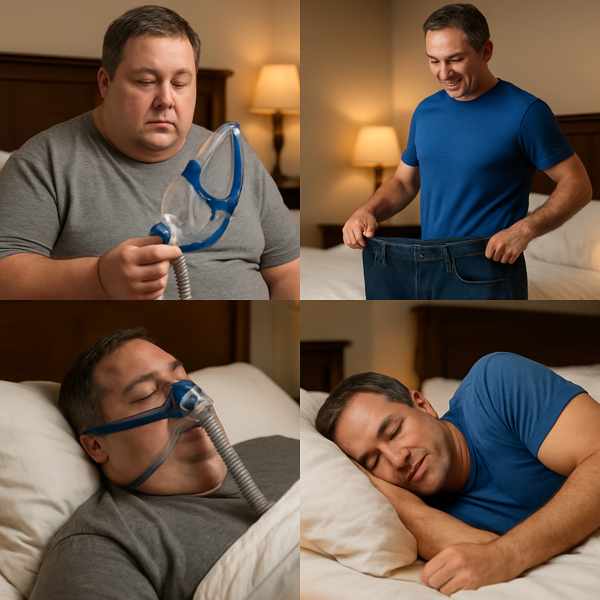Can Shedding Pounds Improve Sleep Apnea?
Can Shedding Pounds Improve Sleep Apnea?
Blog Article

One of the most discussed connections to sleep apnea is excess weight — leading many to ask: can weight loss cure sleep apnea?
While not always a complete cure, weight loss often reduces the severity of sleep apnea significantly.
Causes and Symptoms of Sleep Apnea
Sleep apnea occurs when breathing repeatedly stops and starts during sleep.
Common symptoms include:
- Loud snoring
- Choking or gasping during sleep
- Excessive daytime tiredness
- Signs of disrupted oxygen flow
Why Excess Fat Matters
Carrying extra weight, especially around the neck and upper body, can put pressure on the airway during sleep.
Key risk factors include:
- High BMI (Body Mass Index)
- Narrows the airway path
- Poor muscle tone in the throat
Is It Possible to Eliminate Symptoms Naturally?
In many cases, losing weight can dramatically reverse or manage sleep apnea symptoms.
Possible benefits of weight loss:
- Less airway obstruction
- Reduced risk of waking up during sleep
- More natural treatment options
- Improved sleep quality and energy
However, weight loss may not cure sleep apnea in all cases — especially if anatomical issues or severe OSA are present.
What Results Can You Expect?
Studies show that losing just 10% of body weight can reduce OSA severity by up to here 50%.
Tips:
- Start with small, achievable goals
- Sustainable changes make a difference
- Track your sleep changes
Healthy Ways to Lose Weight for Sleep Improvement
Effective strategies:
- Eat a balanced, whole-food diet
- Boosts metabolism and burns fat
- Sleep on your side
- These relax throat muscles and worsen apnea
Working with a nutritionist or sleep specialist can provide more personalized support.
What to Do if Symptoms Persist
While weight loss is helpful, it may not fully resolve sleep apnea for everyone.
- Keeps airways open at night
- Oral appliances
- Surgery in severe cases
Is Weight Loss the Answer?
For those whose apnea is linked to weight, shedding pounds is often a powerful, non-invasive solution.
Still, sleep apnea is a medical condition that may require combined treatments. Report this page